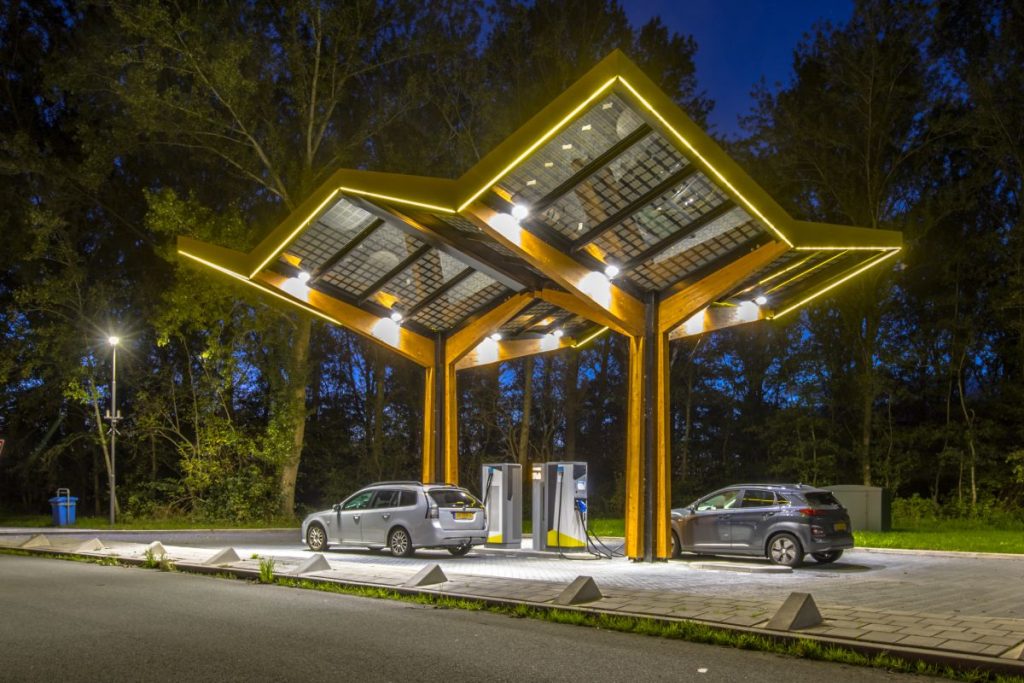As the world continues to grapple with the challenge of climate change, reducing carbon emissions has become a pressing priority for many governments and industries. One of the major contributors to carbon emissions is the transportation sector, particularly gasoline-powered vehicles.
In response to this challenge, electric cars have emerged as a promising solution. With technological advances and increased production, electric cars are becoming more affordable and accessible to a wider range of consumers.
This article will make the case for electric cars as the future of transportation, highlighting their environmental benefits over gasoline-powered vehicles and their potential to reduce carbon emissions.
The problem with gasoline-powered vehicles
Gasoline-powered vehicles have been the dominant mode of transportation for decades. However, the burning of fossil fuels such as gasoline and diesel emits harmful gases such as carbon dioxide, carbon monoxide, and nitrogen oxides. These gases contribute to the greenhouse effect, trapping heat in the earth’s atmosphere and causing global temperatures to rise.
As a result, the transportation sector is responsible for a significant portion of global carbon emissions. In fact, according to the International Energy Agency, the transportation sector accounts for around 37% of global energy-related carbon dioxide emissions.

The solution: Electric Cars
Electric cars represent a promising solution to the issue of carbon emissions in the transportation sector, which is a significant contributor to global greenhouse gas emissions. Traditional gasoline-powered vehicles release harmful emissions, including carbon dioxide, nitrogen oxides, and particulate matter, which contribute to air pollution and climate change. In contrast, electric cars use electricity stored in batteries to power their engines, emitting zero emissions from their tailpipes. As such, electric cars are a critical tool in the fight against climate change.
Moreover, electric cars offer several advantages over traditional gasoline-powered vehicles. They have lower fuel and maintenance costs, making them more affordable in the long run. They can be charged at home, eliminating the need for frequent trips to the gas station. Additionally, electric cars produce less noise pollution and offer a smoother driving experience, providing a more comfortable ride for drivers and passengers alike.
Overall, the adoption of electric cars is essential to reducing carbon emissions from the transportation sector, thereby mitigating the impact of climate change. Their environmental benefits, combined with their economic advantages and improved driving experience, make them a compelling choice for drivers looking to make a positive impact on the environment and their wallets.
Environmental benefits of electric cars
Electric cars offer a range of environmental benefits over gasoline-powered vehicles. Firstly, electric cars produce zero tailpipe emissions, meaning they don’t release harmful pollutants such as carbon monoxide, nitrogen oxides, or particulate matter. According to a study by the Union of Concerned Scientists, electric cars produce less than half the global warming emissions of gasoline-powered cars, even when charged from the dirtiest coal-dominated grid. Furthermore, as the electricity grid continues to shift towards renewable energy sources, electric cars will become even cleaner over time.

The adoption of electric cars can reduce the overall carbon footprint of the transportation sector. Electric cars can support the integration of intermittent renewable energy sources like solar and wind power, thanks to their ability to balance the electricity grid and provide energy storage. With the use of smart charging technologies and renewable energy sources, electric cars can contribute to a more sustainable energy system. This creates a positive feedback loop, as increased adoption of electric cars leads to increased demand for renewable energy, which, in turn, supports the continued growth of the electric car industry. Ultimately, this can help mitigate the impact of climate change while also promoting economic growth and sustainability.
Other benefits of electric cars
Furthermore, the development of electric cars has also spurred innovation in related industries, such as battery technology and charging infrastructure. As the demand for electric cars increases, there is a need for more efficient and cost-effective batteries, leading to advances in battery technology. Similarly, the demand for charging infrastructure has led to the development of faster and more convenient charging stations.
Other benefits would be; societal benefits – the more reduction in air pollution, the more people can improve public health and reduce healthcare costs associated with respiratory diseases; reduction in dependence on foreign oil – improving energy security; serenity – electric cars are quieter than gasoline-powered vehicles, which can lead to reduced noise pollution and a more pleasant urban environment.
Overall, electric cars offer a range of benefits, including environmental, economic, and societal advantages. As technology and infrastructure continue to develop, electric cars are likely to become increasingly accessible and affordable, making them an attractive option for consumers looking for a sustainable and cost-effective mode of transportation.
Looking towards the future, electric cars have the potential to transform the transportation industry. As technology improves and production increases, electric vehicles will become more affordable and accessible to a broader range of consumers. With their environmental and economic benefits, electric cars are likely to become a key component of the future of transportation.

Potential challenges to the widespread adoption of electric cars
While electric cars offer many benefits, there are also potential challenges to their widespread adoption. One major challenge is the need for charging infrastructure. While the number of charging stations is increasing, they are still not as widespread or as convenient as gasoline stations. This can make it difficult for electric car owners to travel long distances or find a charging station when needed. In addition, the upfront cost of purchasing an electric car is still higher than many gasoline-powered vehicles, which can be a barrier for some consumers.
Another challenge is the limited range of electric cars. While the range of electric cars has increased significantly in recent years, they still cannot match the range of gasoline-powered vehicles. This can make them less suitable for long-distance travel or for those who don’t have access to charging infrastructure.
Conclusion
Electric cars represent a promising and exciting future for transportation. With their environmental and economic benefits, they are poised to revolutionise the way we travel and reduce our carbon footprint. As technology continues to improve, the cost of electric cars is becoming increasingly competitive, and charging infrastructure is becoming more widespread. Governments around the world are also offering incentives for purchasing electric cars, encouraging more people to make the switch.
We can be hopeful that the widespread adoption of electric cars will accelerate in the coming years, bringing us closer to a cleaner and more sustainable future. As we look to the future, it’s clear that electric cars will play a critical role in reducing our carbon footprint and mitigating the worst impacts of climate change.




